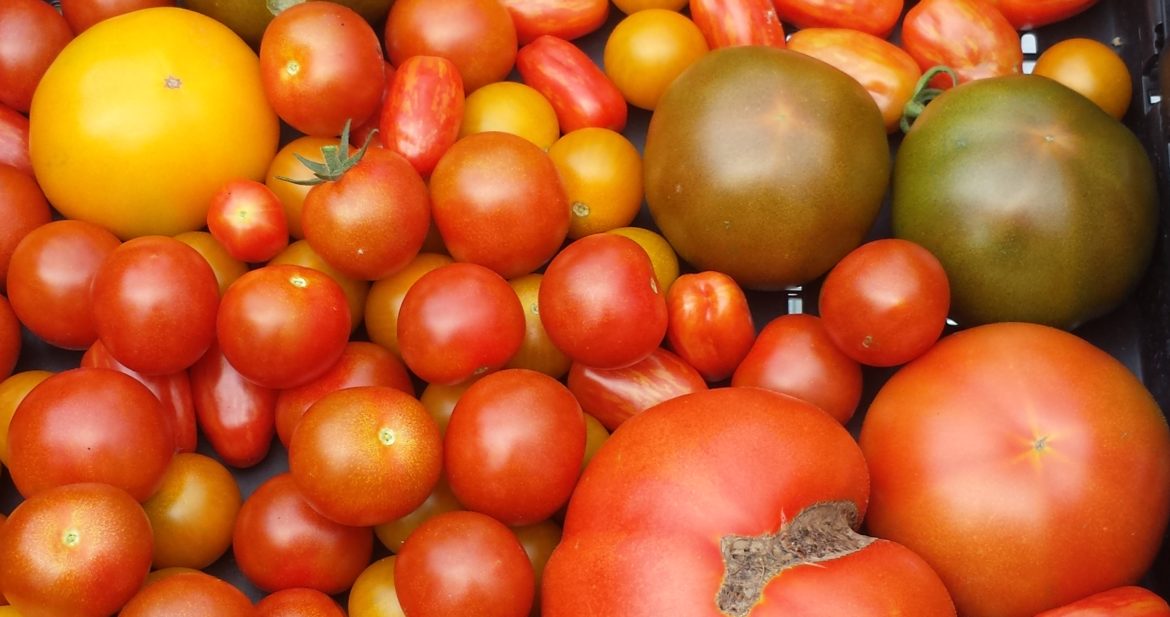This time of year in an Ontario season is special. It’s the peak of growing when crops that are available for just a tiny part of the year are available and we can eat, for a short time, like we were living in another, warmer part of the world. Tomatoes and eggplant, sweet peppers, beans, corn, melons. Beautiful and sweet, richly flavoured and in glorious colours, these crops are to be savoured because they are so delicious and because of their scarcity in a Canadian seasonal diet.
Recently I was reading an article about the Japanese culinary tradition called kaiseki. The article described how kaiseki, a culinary form where food is presented simply but artfully, is guided by the principle of shun, or taking things at the peak of their freshness, flavour and quality. I realized that as a vegetable farmer, I am lucky to be able to consistently taste the food from our fields at their peak and how this idea, also the guiding principle of our farm, is a culinary as well as an ecological ideal.
Modern North American food culture and particularly its industrial nature has guided us all away from eating seasonally when crops are at their best (and available locally) and towards eating on demand, so that eaters can eat whatever they want whenever they want – trading quality for choice. At some point, this was clearly an amazing and beneficial thing, diversifying our diet and relieving the stress and monotony of winter eating. But now, in a time when the Earth’s natural systems (and us in turn) are under such a great threat, I wonder if it isn’t time to recall and rejuvenate on a large scale the concept of shun – to remember that eating seasonally is to be bringing the peak of taste and nutrition into our lives and that to do so is not a hardship but rather the peak of enjoyment.
The UN’s Intergovernmental Panel on Climate Change recently released (yet another) report stating that agriculture must dramatically change to implement targets that would combat climate change and be able to adequately feed the earth’s population. Industrial agriculture is destroying forests, creating greenhouse gases and uses enormous amounts of land and water. I heard the details of this report as I was considering the principle of shun. The two ideas helped me recall the reasons why we farm the way we do and I could see that these reasons – to bring people the best quality food and to feed our community in an ecologically rejuvenating way – are intrinsically intertwined. To farm this way and feed our immediate community allows for our community to enjoy food at its peak. We believe that it also contributes to a hopeful, more ecologically sustainable future where we can continue to live well while living in right relationship with the earth.
1